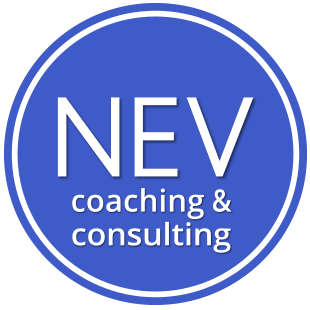 One of the most powerful lessons and skills that I have learned over the years, and which has tremendously improved my quality of life and success, is the notion of assertiveness.
One of the most powerful lessons and skills that I have learned over the years, and which has tremendously improved my quality of life and success, is the notion of assertiveness.
This is such a challenge for so many of us, the lack of which often results in either being too lenient and getting taken advantage of or demonstrating an excessive aggression and frustration that usually leaves damage in its wake.
I’m not saying that acquiring this ability is an overnight thing.
It takes some important self-work and loads of practice.
But it’s so worth it. Because the amount of pain, struggle, anxiety, fear and stress that is erased once this is healthily achieved, is enormous.
Here is how we get started:
1) Assertiveness means understanding that no one can protect you like you can protect yourself.
Valuing yourself – your time, effort, rights, etc. – is something only you can truly decide to do and uphold.
I wish I could tell you that one just makes the mental decision to do so and there you go. But in reality it takes time in working through the issues we all have and creating a perspective of yourself and the world that is closer to reality, healthier and all around more reasonable for your success.
What it does usually include is some understanding of the following:
- That you are not less worthy than others. Easy to understand intellectually but perhaps harder to apply daily. How often do you apologise, over-thank, make concessions, adapt too much, etc.?
- That you are not responsible for others. Unless you have small children, it is not your role in life to save or fix anyone and trying to do that is not only exhausting, but in fact, disrespectful. Try this talk: “Anne Lamott: 12 truths I learned from life and writing”.
- That people will treat you as you train them to treat you. If you continue to give in and always be available, that is what the world will learn is ok to do with you. If you start to put certain healthy limits and well delivered messages about your own needs, they will learn that too. Your choice.
2) Most relationships ARE conditional, and they SHOULD be.
It’s beautiful if you are willing to go to the ends of the Earth for someone, but make sure that is a choice, and a well made one. Accepting any kind of treatment – even from your own children! – will send a strong message to the World of who you are, how you operate, and what you are worth.
You are not doing a favor to anyone – and certainly not to yourself – by saying yes to the kind of treatment that makes you miserable, or at least, really stressed.
Because the fallout of that will impact them as well, so might as well make it easier for everyone. And fallout, there will be.
If someone is continually hurting you, even in a small way, it will come out whether you like it or not.
An if Life is essentially a series of moments, you get to decide how you want to spend them and with whom. And that makes our human interaction conditional, and necessarily so.
Choose wisely. Be Assertive.
3) Assertiveness is SO MUCH about healthy communication.
The great majority of our human interaction depends on communication, be it verbal, nonverbal or otherwise.
Many messages, even the most difficult ones, will impact another depending on how you deliver them.
When we don’t respect ourselves and our needs, the backlash of our frustration will be a lot more damaging than a well communicated “No”.
For example, see the difference between:
- “Thank you for the offer but at this moment I need time and energy to focus on my family and that is a promise I made and need to stand by”.
- Versus a “Yes” today and a blowup tomorrow with “how dare you think you have the right to…!!!” Read here more about how to have a quality conversation.
4) When you’re assertive, some people might get pissed off, and that’s ok.
Looking back at 3), if you have designed and delivered a constructive way of communicating your needs, and someone still comes back with aggression, it really is their problem.
Still, it can be disconcerting to deal with other people’s frustration at you for not doing what they want.
And that, really, is what it is.
Once you get clear on the nature of this, it will be easier to understand how best to manage other people’s expectations.
Some may need some added explanation or understanding, if you are willing to give it. But my experience is that with the right kind of message, most people are decent and mature enough to respect it.
Those who are not, should not be in your life. Then we can talk about ways to get rid of them or at least manage them better, if the former is not an option.
5) Practice really does make Perfect.
It’s so hard to start saying no, or asking for what you want, when this is not a natural habit for you. It can even hurt, you might cringe internally or externally, or ruminate over it afterwards.
It’s ok, just keep doing it and learning. Whether it is the quality of your room in a hotel, a conversation with your partner, or a negotiation at your work, just keep formulating good communications and saying it out loud.
You WILL get used to it, because like anything we practice with diligence, it will become a new habit.
And if you have some set backs, that’s also ok. Just keep checking in with yourself about what you want, what makes sense, and what ultimately might be the worst possible thing that happens. Often, it’s not so bad at all.
What assertiveness strategies have worked for you?
Do you have any good examples to share?
Read our next article on the subject for more information “The Magic of Elegant Assertiveness and How to Get It”.
We always love to hear from you.



Great article. Assertiveness is a challenge for way too many people.
Thank you very much Sandy! Always a pleasure to hear from you and I agree definitely. We’ve had a lot of request for information on this topic, and it seems to reach across culture, age, etc. If you have any additional resources or insights about it please do share with us. All the best to you!